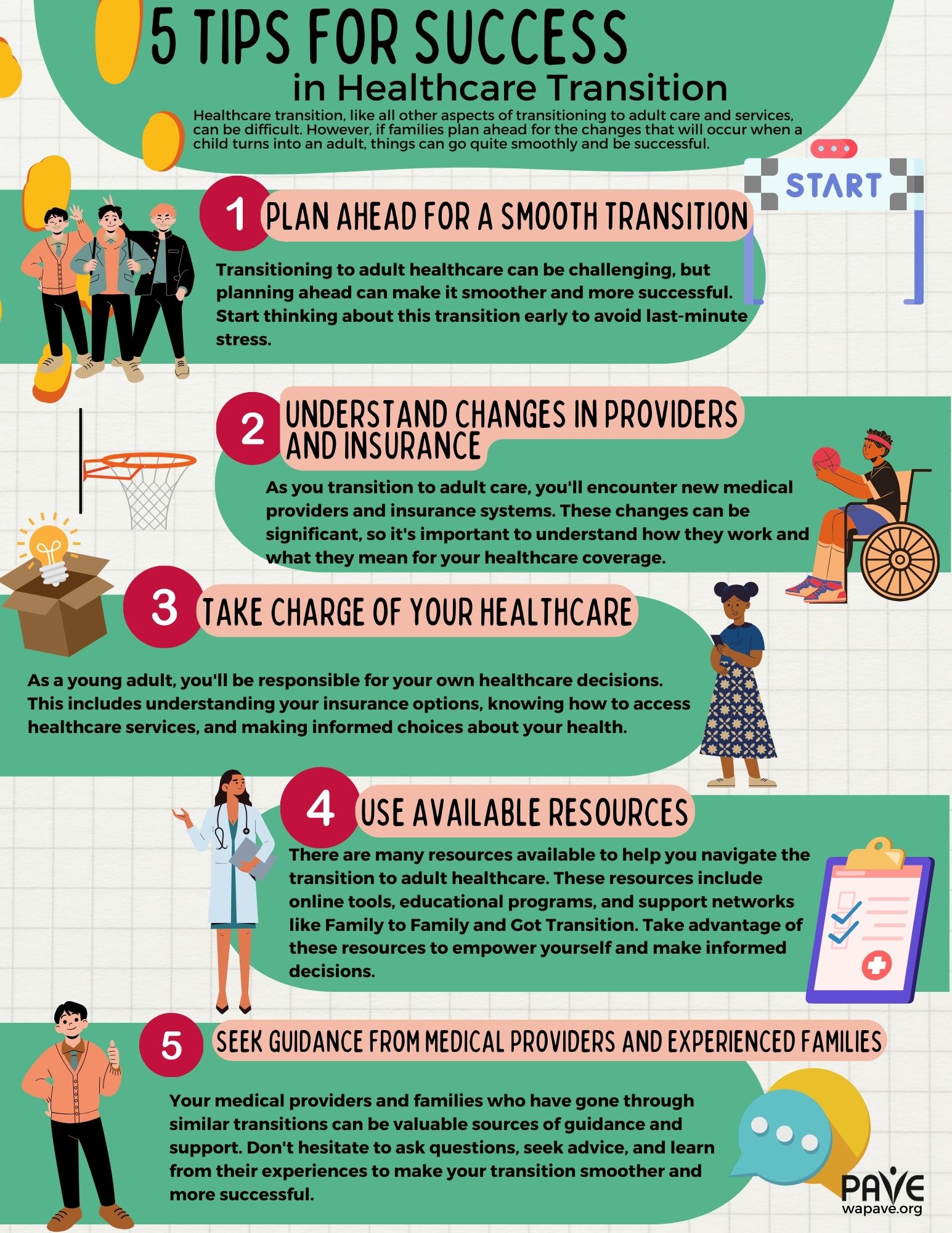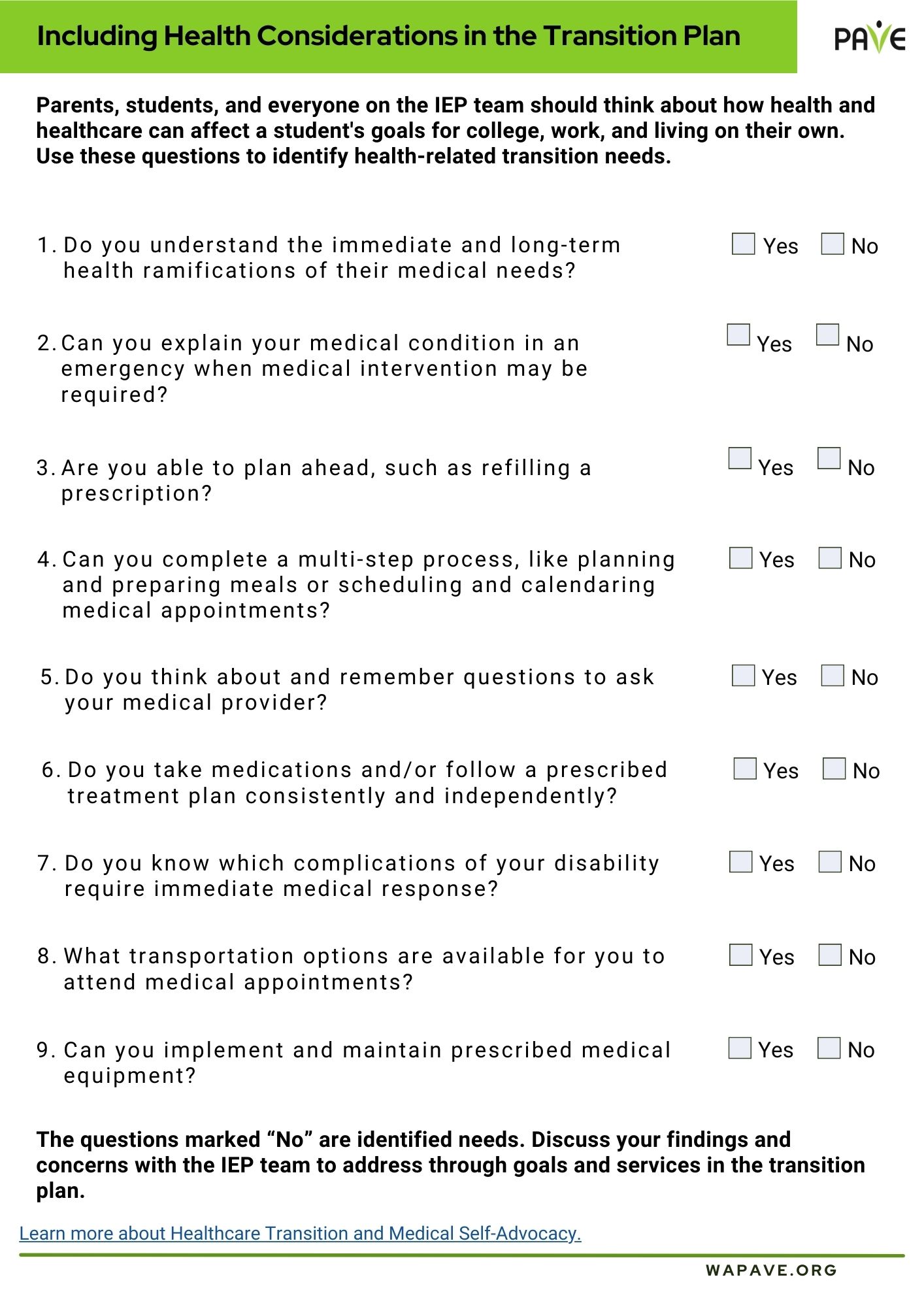Brief Overview
- A “medical home” is a coordinated care team with a coordinated care plan for an individual’s medical needs.
- Medical homes can be very useful any time an individual has more than one provider and more than one provider prescribing medications or treatments. They are not only for highly complex medical conditions.
- Medical homes have many advantages, but it’s important to select providers with the interest and qualities to make it work
- This article offers tips and questions to ask yourself and your family’s providers to help decide if your child or other family member needs a medical home.
Medical Home: What is it? Does my child need one?
A medical home creates a coordinated team and a coordinated care plan around all your child’s medical needs. When a family or youth works with a physician or clinic to build (create) a medical home they all work together to “wrap around” the different medical providers and services needed for that person’s best health and wellbeing.
Medical homes don’t happen right away and don’t always look the same. Often a medical home is started and/or managed through a primary care or pediatric clinic, but if a person has complex medical needs, a specialist provider, practice, or clinic may be a useful “site” for the medical home.
Medical complexity, or a diagnosis that affects multiple systems in the body or has the potential to be life-threatening, adds its own set of challenges to a medical home. A medical home for an individual who is considered medically complex often has multiple specialists as well as therapists, medication management, and other systems such as school or early intervention. A good medical home can be a communication hub that helps this large multi-disciplinary team stay on the same page and not work at cross purposes.
No matter who provides coordination, a medical home supports your child and helps you as the parent or guardian with care coordination. Some families have medical homes “built” through a specialist’s office, some a primary care pediatrician, and others who are on Medicaid can have that coordination through a managed care patient care specialist.
There doesn’t need to be medical complexity to start discussing a medical home with a child’s team; there just needs to be more than one provider working with the child/youth or young adult, and with different medications prescribed by different providers. A medical home helps everyone be on the same page and you as a family to be part of the overall care plan.
When working with a provider to develop a medical home, remember that respect is a two-way street. Working with complex needs can be frustrating and scary and just because someone is a physician doesn’t mean they have all the answers.
Ask questions and let your providers know when you don’t understand a decision or if you disagree with their decision. This can be done respectfully and can help build a strong line of communication.
A medical home set up under this mutual respect with the family and patient at the center and as co-creators of care is at the heart of the medical home idea and an essential foundation for a medical home that works.
When choosing a provider to help you create a medical home, here are questions to ask yourself:
- Who is being valued and honored as the expert on the child or youth? Is it the family and the individual?
- Is this team family and patient-centered?
- Is there trust and respect that goes both ways?
- Are Culture, race, language, and religion being honored?
- Is an effort being made to understand not only the diagnosis but also its long-term impact on the patient and the family?
- Are all an individual’s healthcare needs included in the care plan, including well-child and required immunizations?
- Can you get help to find specialty care and community services when needed?
- Do you feel supported in managing the care plan as a caregiver, family, or individual?
- Is information provided to help understand choices and options in care, and is time set aside for discussion, with the family and/or patient being the person who decides?
What other qualities are important when choosing a provider or practice to create a medical home?
- It’s helpful if your provider has at least some experience with the diagnosed condition. The relationship of the provider with a patient and their family can be just as important.
- Is the provider a good listener? Open communications are important so decisions are developed together, and the provider recognizes that the family and their youth/young adult are the experts in developing the young person’s care.
- If your child is a transitioning youth an important consideration may be a provider or clinic’s connection to adult care and their willingness to work with the youth rather than the adult caregiver in developing care plans.
- Does a provider work well with the other members of a child’s care team? Are they willing to communicate and think proactively about sharing information? When a family with their child, youth, or young adult works with a provider in a medical home to make decisions together as a team, and information is shared with all members of the team, it provides a robust model for long-term working care plan development no matter who moves in and out of that family and individual’s medical home.
- A willingness to work with supports inside and outside the medical profession is also something to think about. A physician that is willing to work with a school and advocate for the child’s needs in a school environment goes a long way in setting up a strong IEP or 504 education plan.
Additional advantages to consider taking time to work with a provider to develop a medical home:
- It can help in the early identification of additional healthcare needs or potential complications, creating a proactive approach
- Provides consistent, ongoing primary care
- Continuing coordination with a broad range of other specialty services
- Medical home team’s support can help in finding more medical services when needed
- More cost-effective care overall
- A child or youth’s doctors will get to know their needs and individual circumstances better
- The integrated partnership approach creates better healthcare outcomes
- Information is easier to share across the different providers, with therapists, schools, and the patient and families themselves
- Strong relationship building is emphasized in care
- Fewer visits to the emergency room and hospital when problems are found more quickly
Family can be a constant in many children’s lives. They know the history of the child and they will be there in the future.
Bringing a trusted medical provider into that circle to help with medical coordination and care can increase a family’s ability to look beyond the need to juggle the many issues of caring for a child with special healthcare needs.
A medical home can spread the burden of coordination and decision-making between many hands and can keep everyone on the same page. This alone can be worth the extra work that you may face in the beginning.
Resources
Here are some useful online resources for creating and using a medical home:
American Academy of Pediatrics
Related
Tips to Organize Your Child’s Medical and School Documents



